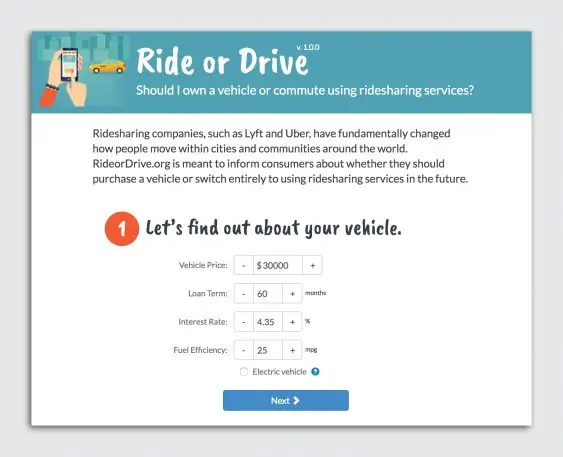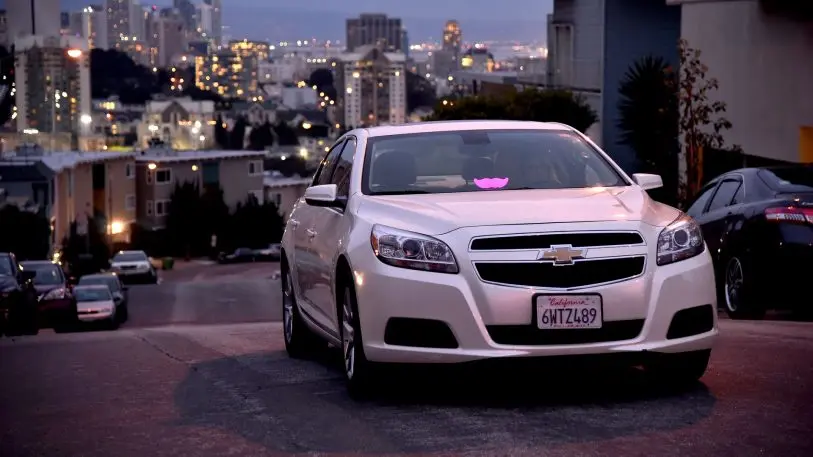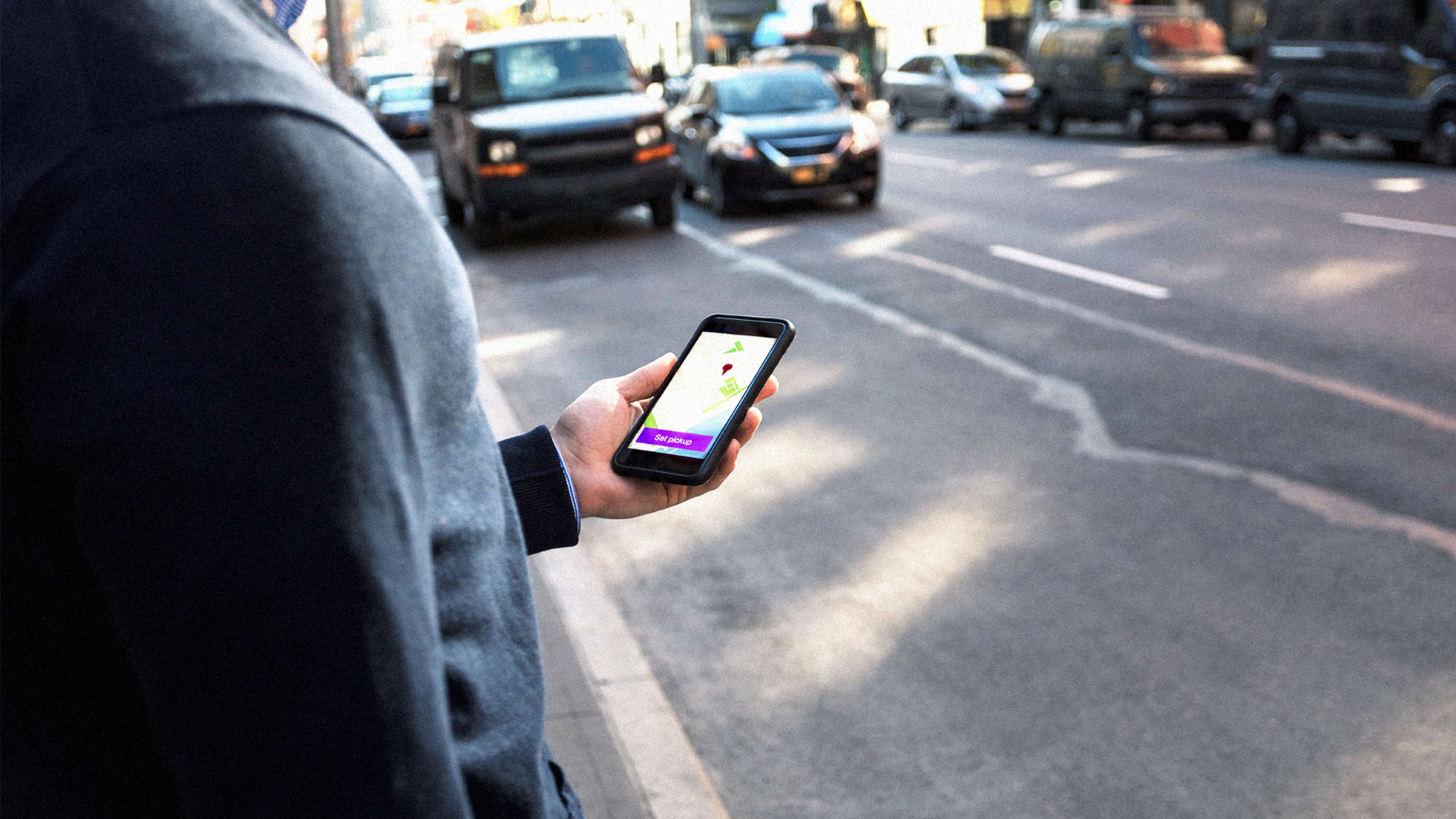Taking Uber or Lyft to and from work and to run errands might seem more expensive than driving yourself–but in many cases, relying on a ride-hailing service is cheaper than buying and using a car of your own. A new calculator compares both scenarios, and might help you decide to ditch car ownership entirely.
“The goal of this work was to try to basically take the true, full cost of ownership–all of the obvious and non-obvious costs associated with owning a car–and then begin to compare it to mobility services,” Todd Davidson, a research associate and lecturer at the University of Texas at Austin’s Energy Institute and Webber Energy Group, tells Fast Company. Davidson is part of a team that created the Ride or Drive calculator.
In the calculator, you can plug in the sticker price of a new car, details about your loan, and how much you drive. You can also tweak details about how much you spend on maintenance, insurance, gas, and registration. But the tool also includes costs that people likely never consider, such as property taxes you pay on your garage, or the value of the time you spend stuck behind the wheel.

In some cases–if you drive a lot and have a cheap, fuel-efficient car that you plan to keep for a long time, for example–the calculator suggests that buying a car makes more sense than a ride-hailing app. The researchers didn’t design the tool to advocate for people to get rid of cars, but wanted to challenge the common assumption that owning a car is the better choice, and educate people so that they can fairly compare the tradeoffs.
The calculator is one part of a larger research project that attempts to understand how transportation patterns may shift in the near future, and what that means for carbon emissions. By better understanding the economic drivers of transportation choices (including public transit, though it isn’t included in the simplified public app), the University of Texas researchers plan to estimate how many drivers may make the shift to ride-hailing and what impacts that could have on energy use. Electric cars are likely to become more commonly used for ride-hailing, particularly as companies like Lyft start to use autonomous cars and own their own fleets rather than using drivers’ vehicles. As that shift accelerates, emissions are likely to decrease.
“When most people talk about energy consumption and CO2 emissions, a lot of the focus of the discussion gets shifted towards the electric grid, when in reality a lot of the lowest hanging fruit is in the transportation sector,” says Davidson. The electric grid has already started to shift to lower emissions as coal plants close and renewable energy grows–and as cars plug into a cleaner grid instead of using gas, that will impact climate pollution.

Davidson is more cautious. “I think many people do love cars,” he says. “And even though we are seeing a major shift in terms of millennials’ consumption behavior being different from prior generations, I do think that vehicles provide an opportunity for conspicuous consumption.” Still, he says, he thinks the shift will be “non-trivial,” and with it will come many other related impacts.
“If we shift to mobility services primarily driven by electric vehicles–all of the incredible cascading impact that has on the energy industry, petroleum industry, and the subsequent effects on the chemical manufacturing industry–it’s just an amazing rabbit hole,” he says. “If gas stations disappear, what happens to Gatorade? If people are using automated vehicles to drive from Austin to Houston, what happens to the airline industry? The impacts cascade throughout the economy.” Those potential impacts also affect energy use and emissions–and they’re something that the researchers hope to also study in future work.
Recognize your brand’s excellence by applying to this year’s Brands That Matter Awards before the early-rate deadline, May 3.
